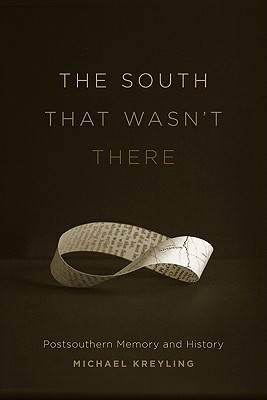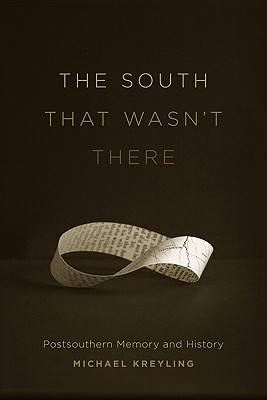
- Retrait gratuit dans votre magasin Club
- 7.000.000 titres dans notre catalogue
- Payer en toute sécurité
- Toujours un magasin près de chez vous
- Retrait gratuit dans votre magasin Club
- 7.000.0000 titres dans notre catalogue
- Payer en toute sécurité
- Toujours un magasin près de chez vous
Description
Once, history and "the South" dwelt in close proximity. Representations of the South in writing and on film assumed everybody knew what had happened in place and time to create the South. Today, our vision of the South varies, and there is less "there there" than ever before.
In The South That Wasn't There, Michael Kreyling explores a series of literary situations in which memory and history seem to work in odd and problematic ways. Looking at Toni Morrison's masterpiece Beloved, he tests the viability of applying Holocaust and trauma studies to the poetics and politics of remembering slavery. He then turns to Robert Penn Warren's grapplings with his personal memory of racism, which culminated in his attempt to confront the evil directly in his book Who Speaks for the Negro? In a chapter on the court contest between Margaret Mitchell's estate and Alice Randall over Randall's parody The Wind Done Gone, Kreyling treats neglected issues such as the status of literary sequels and parody in an age of advanced commodification of the South.
Kreyling's searching inquiry into the intersection of the southern warrior narrative and the shocks dealt America by the Vietnam War uncovers what appears to be the deliberate yet unconscious use of southern Civil War memory in a time of national identity crisis. He follows that up with a comparison of Faulkner's appropriation of Caribbean memory in Absalom, Absalom! and Madison Smartt Bell's in his trilogy on Toussaint Louverture and the Haitian revolution.
Finally, Kreyling examines some new manifestations of southern memory, including science fiction as embodied in Octavia Butler's novel Kindred, "mockumentary" in Kevin Willmott's film C.S.A., and postmodern cinema parody in Lars Von Trier's Manderlay.
Lively and frequently confrontational, The South That Wasn't There offers a thought-provoking reexamination of our literary conceptions about the South.
Spécifications
Parties prenantes
- Auteur(s) :
- Editeur:
Contenu
- Nombre de pages :
- 240
- Langue:
- Anglais
- Collection :
Caractéristiques
- EAN:
- 9780807136485
- Date de parution :
- 01-11-10
- Format:
- Livre relié
- Format numérique:
- Genaaid
- Dimensions :
- 155 mm x 229 mm
- Poids :
- 498 g

Les avis
Nous publions uniquement les avis qui respectent les conditions requises. Consultez nos conditions pour les avis.






